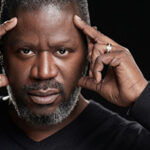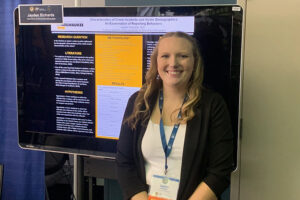An expected influx of 50,000 visitors coming to Milwaukee for the Democratic National Convention brings a set of challenges unlike any other faced by the city.
Securing the electrical infrastructure needed to make sure that air conditioners keep humming during the convention in July might be near the top of the list.
Business leaders who participated in a panel discussion about the convention hosted by the UWM Alumni Association on Thursday expressed optimism about Milwaukee’s ability to host the political get-together. They’re excited about the potential impact on the region’s economy and image that could last well after the event gavels out of session.
“When I think about what the DNC means to Milwaukee, the first thing is putting Milwaukee on a world stage in an exciting light,” said Lafayette Crump, vice president of diversity, vendor accountability and growth for the Milwaukee 2020 Host Committee.
Crump was one of five panelists at the Alumni Association’s Master Chats discussion on the DNC, held at the UWM Student Union Ballroom.
Some nine months before delegates gather, the focus is on preparing for the national spotlight that comes with hosting the city’s first major political party convention. Gale Klappa, the executive chairman of the WEC Energy Group, said the biggest issue from his standpoint was security.
“The whole issue of making sure that we are fortified, if you will, in terms of any kind of interruption or any kind of attack is a major issue,” Klappa, a 1972 UWM graduate, said after panelists were asked what was the biggest challenge or surprise encountered since Milwaukee was named the convention site in the spring.
Klappa said that his company was already coordinating with Homeland Security, the FBI and the security detail from the Democratic National Committee “to make sure that we’re going to be fine in terms of energy supply for the city.”
“We’ll be in good shape, but there’s a lot of coordination and a lot of security detail that needs to be put in place to make sure that security zone is absolutely secure,” Klappa said.
The convention will be held at the Fiserv Forum, though it’s likely that a sizable security perimeter will be established around the arena and other nearby venues that will serve as convention sites, including the UW-Milwaukee Panther Arena.
Downtown businesses are curious to see whether their establishments will be inside or outside the security zone, said Emily McElwee, executive director of the East Town Association.
“We’ve heard from other host cities that it impacts how much revenue it increases, whether you’re in or out,” McElwee said. “If you’re inside the zone, maybe you see more of the boom because of the convention than if you’re outside of it, because people won’t be going in and out of it frequently because it is a lot of effort security-wise.”
Each panelist spoke highly of the coordination and enthusiasm from stakeholders across the region hoping to make the convention a success, including government, business and community leaders.
For UWM, the convention offers the potential of volunteer and internship opportunities for students and research projects for faculty.
Thomas Holbrook, a distinguished professor of political science, said that he and some of his colleagues are trying to coordinate with counterparts at the University of North Carolina-Charlotte on carrying out similar research projects. Charlotte is hosting the 2020 Republican National Convention.
“What would really make it special is if we could have some access to the convention, even on slow days,” said Holbrook, who is also the Wilder Crane Professor of Government.
“Also for the internship program that we’d like to develop, just thinking in terms of the contacts that they’ll make and the things that they’ll learn, not just about politics, but about running things and making things work,” Holbrook said. “I think that’s really valuable.”





